Israeli Intelligence Foils Iranian Espionage Attempts On Social Media
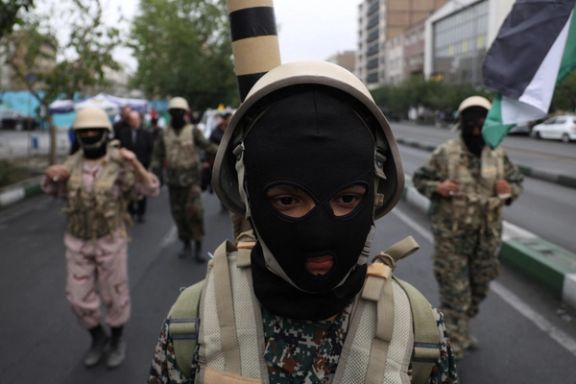
Israel's Shin Bet security agency has exposed a covert operation by Iranian operatives attempting to recruit Israelis for espionage via social media.

Israel's Shin Bet security agency has exposed a covert operation by Iranian operatives attempting to recruit Israelis for espionage via social media.
Posing as fake real estate brokers, drone marketers, and individuals seeking services, the operatives operated on platforms such as X, Telegram, WhatsApp, Facebook, and Instagram.
Tasks assigned to Israelis included photographing locations and verifying addresses, all in exchange for financial incentives. Trained to spot such cat-fishing during army service, several of the Israelis alerted the authorities.
The Shin Bet said it was familiar tactics of the Iranian security agencies, primarily focusing on intelligence gathering rather than explicit security matters, Iranian digital activities escalating since the outbreak of the Gaza war on October 7.
“Its purpose is to assist Hamas in its war and to damage Israel’s national resilience and war effort, sowing demoralization and deepening social divisions,” the agency said in a statement.
Shin Bet also uncovered social media pages impersonating Israelis, “making cynical and manipulative use of the issue of the hostages, and even trying to act against families of hostages and bereaved families.”
Screenshots released by Shin Bet show an Iranian operative allegedly soliciting an Israeli for a murder plot, negotiating a payment of 70,000 euros. An audio recording features an Iranian operative speaking in Hebrew, offering $100 to an Israeli for an unspecified task.
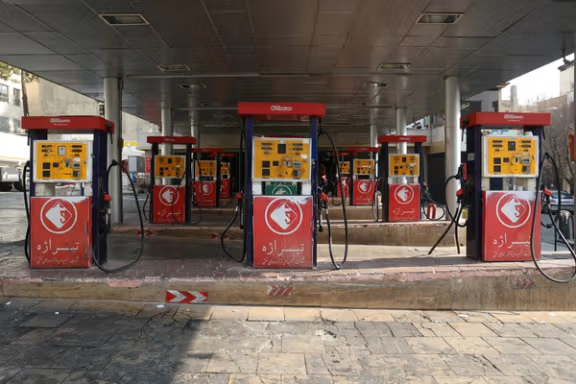
A member of the Energy Committee of the Iranian Parliament claimed that the cyber attack on Iran's fuel supply system was carried out “from inside.”
Parviz Mohammadnezhad Ghazimahalleh said on Thursday that the the attack which cut off 70% of the country's petrol stations was a “physical” one. “They entered the system via a USB or a program from inside,” he added without specifying the identities of the people involved.
On Monday, the cyberattack which crippled gas stations across Iran was claimed by the hacking group "Gonjeshk-e-Darande" or Predatory Sparrow which announced the attack on X, claiming that they took out “a majority of the gas pumps throughout Iran.”
Iran accuses “Gonjeshk-e-Darande” of having links to Israel. The group rose to prominence as a hacktivist two years ago for a similar cyberattack on fuel distribution centers across Iran on the eve of the second anniversary of the bloody suppression of the November 2019 protests. In a separate incident, they claimed responsibility for hacking the state railway company.
It is the second time such an attack has taken place, Ghazimahalleh said, accusing the responsible officials of “negligence” and “carelessness.”
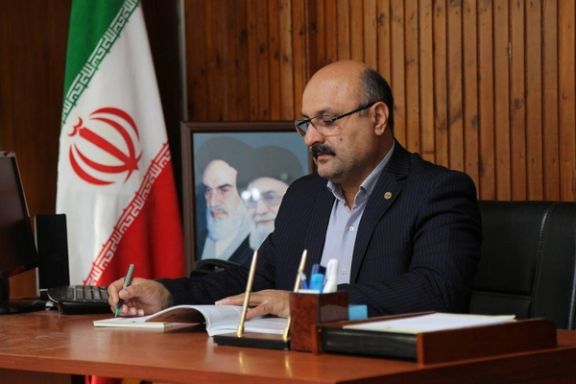
The remarks came a day after Hadi Beigi-Nezhad, another member of the Energy Commission of Iran’s parliament, said a cyber virus had infected the fuel system, attributing it to an individual and a network that had infiltrated the country.
Last year, “Gonjeshk-e-Darande” garnered attention for successfully penetrating the computer systems of major steel companies in Iran.
Tejarat News, an economic news website, announced on Thursday that the majority of gas stations in Tehran province have been reconnected to the online distribution system.
Out of a total of 330 gas stations in the province, 239 are now connected to the national fuel system, Tejarat News quoted a local official as saying.
Also on Thursday, Morteza Mahmoudvand, another Iranian lawmaker, blamed “Zionists” and Israel’s intelligence agency Mossad for the fuel system attack and urged “an equilibrium of fear” in order to fight what he called the country’s enemies.
Equilibrium of fear means doing to them what they do to us, added Mahmoudvand, who is a member of the National Security and Foreign Policy Commission of the Iranian parliament.
He claimed that Israel’s cyber operations against Iranian targets will go on even after the Gaza conflict. We need to prepare ourselves in digital, technological and virtual domains not to be vulnerable to future attacks, he went on to say.
This is while the Islamic Republic has already been involved in several cyber operations against Israeli targets.
Earlier in the month, Iran-linked hackers targeted a water facility in the rural area of County Mayo in Ireland, leaving the residents without water for two days.
The attack was carried out by pro-Iran Cyber Av3ngers group which wrote a message on the infected computer system and claimed that the facility was targeted because it used Unitronics Vision Series programmable logic controllers (PLCs), an Israeli-made piece of equipment.
In November, Microsoft’s Threat Analysis Center reported that the Islamic Republic has intensified its cyberattacks and influence operations since 2020, targeting the likes of Israel and Bahrain, one of the Persian Gulf states to make peace with Israel under the 2020 Abraham Accords, brokered by the US.
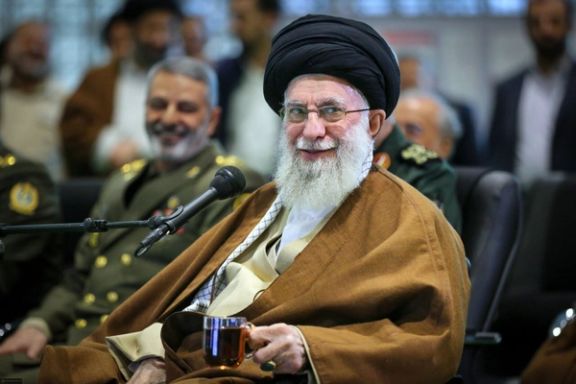
The representative of Iran's Supreme Leader in Kerman, claims that the residents of the province are keen to meet the long-time Supreme Leader in a bid to undermine unrest.
Hassan Alidadi Kermani noted, "The population of Kerman province exceeds three million people, and there is a collective wish for everyone to have the opportunity to visit Khamenei."
However, his remarks unfold against a backdrop of growing discontent among the majority of Iranians who hold Khamenei accountable for the deaths of civilians in anti-regime protests over the past years. Kerman in particular has been a hotbed of unrest in the wake of the September 2022 uprising, sparked by the death in morality-police custody of Mahsa Amini.
Opposition figures assert that the repressive forces, including their commanders, share responsibility for the aggression during the 2022 protests and blame Iran's Supreme Leader, Khamenei, as the central figure responsible for the atrocities and aggression.
A rights group report says that in November 2019, security forces of the Islamic Republic allegedly killed at least 3,000 protesters during demonstrations triggered by a significant fuel price hike. The protests swiftly transformed into calls for government overthrow and opposition to Khamenei. Reuters, at the time, reported 1,500 deaths.
Recent reports from rights groups shed light on the aftermath of protests sparked by the 2022 death of Mahsa Amini in custody. The reports indicate that over 500 people, including minors, lost their lives, thousands were injured, and 22,000 were arrested. In response, the Iranian government has imposed several death sentences for demonstrators, with some already executed.
The Iranian judiciary claims the verdicts were issued through fair trials, but details were not disclosed. Concerns persist over the lack of due process, restrictions on defendants choosing their legal representation, and the overall transparency of the legal proceedings in such cases.
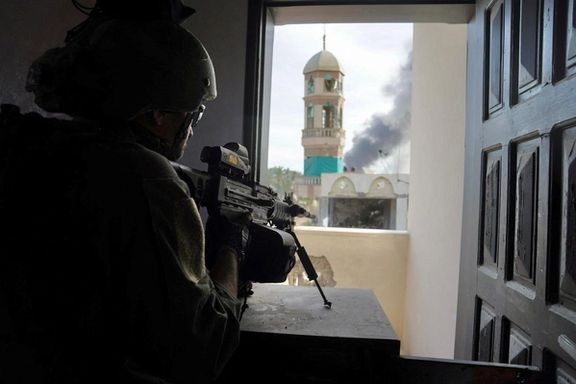
The Commander-in-Chief of the Islamic Revolutionary Guard Corps (IRGC) has predicted a divine intervention ensuring Iran-backed Hamas's victory in its war against Israel.
Hossein Salami stated Thursday that "according to divine promise, the enemies will soon be defeated", referring to Israel. Claiming the spiritual underpinning of the IRGC, he added, "The IRGC embodies many divine symbols, and its essence and nature are based on piety."
Since the terror attack of October 7, in which Hamas unleashed thousands of its militia to invade the Jewish state, Israel has responded with its most brutal force since the proscribed terror group took control of Gaza in 2007. Around 20,000 Gazans have been killed in the offensive which came after 1,200 mostly civilians in Israel were murdered and 240 more taken hostage to Gaza.
The IRGC, classified as a foreign terrorist organization by the United States, is directing Iran's proxies in countries including Lebanon, Iraq, Syria and Yemen in the wake of the Gaza war. Over 100 attacks have been carried out against US facilities in the region and attacks on Israel from north to south.
As a potent faction in Iran, the IRGC not only oversees a substantial business empire but also commands elite armed and intelligence forces. Washington asserts that these forces are actively involved in a global terrorist campaign.

As Iran’s domestic carmakers lose money due to sanctions, a technological gap and mismanagement, officials are promising to boost the electrical vehicle production.
The only avenue open to Iran is to make deals with Chinese companies and start EV assembly, like fossil-fuel vehicles it produces.
China, dominating the global electric vehicle (EV) manufacturing landscape, holds the largest market share among the top five producers in 2023. Germany and the United States trail, while France and the UK see a rise in EV production. Collectively, these nations wield substantial influence on the global EV manufacturing scene.
The recent UN Climate Change Conference, COP 28, emphasized international efforts to combat climate change, with a focus on EV adoption and greenhouse gas reduction. Major EV brands like Tesla, Kia/Hyundai, and Mercedes spearhead the transition to battery power, while newcomers such as Rivian diversify the market, influencing its ongoing evolution.
In Iran, IKCO introduced the Tara EV, the country's inaugural all-electric vehicle, set for release in March 2024. Developed by IKCO's Jetco division, the Tara EV boasts a 45-kWh battery pack, providing a 300 km range on a full charge. Iran's Minister of Industry, Abbas Ali-Abadi, announced plans for three locally produced EV models by the first half of the upcoming Iranian year (beginning in March).

With ambitions for increased EV manufacturing and imports to meet rising demand, the government aims to deploy 100,000 electric taxis in key cities this year that suffer from chronic air pollution. Significant projects, including the launch of Oxygen, Iran's first all-electric car, and MAPNA group's plan for 20 EV charging stations nationwide.
However, Iran grapples with challenges within its auto sector, encapsulated by the term "Car Mafia." This network, alleged to thrive due to the state-owned auto sector's monopoly and inadequate government oversight, faces accusations of financial wrongdoing, evading US sanctions, and contributing to mismanagement. The "car mafia" obstructs the import of reasonably priced cars, manipulating the production of pricier, inferior local vehicles. This term encapsulates various issues within Iran's auto sector, including the impeachment of the industry minister and corruption allegations, portraying it as a formidable and dishonest force negatively impacting the auto industry and vehicle quality.
China’s Dominance in Iran Future EV Market
China's dominant position in the EV industry poses a significant challenge for Iran's plans, particularly concerning the production and processing of essential minerals like cobalt. The reliance on China raises doubts about the feasibility and affordability of Iran's comprehensive EV strategy, emphasizing the need to address China's hegemony over critical minerals for a reliable supply chain.
Global concerns emerge as China's control over vital minerals triggers reactions and export restrictions, impacting the global EV supply chain. The US responds with proposed regulations to limit tax breaks for EVs using minerals or batteries manufactured in China, reflecting the international repercussions of China's dominance in the EV sector.
Despite China and Iran's intentions to collaborate on EV manufacturing, Iran faces challenges in providing sufficient electricity for EV charging amid a natural gas crisis. The gas shortage would impede widespread EV adoption, necessitating steps to encourage renewable energy, which is substantially underdeveloped in Iran.
While automobile companies in Iran claim to be jointly producing electric cars with China, studies indicate that, in the current situation, most automobile companies in Iran are not profitable. Due to government meddling, Iran's state-owned automakers suffer significant losses of $3.7 million a day, or more than $1 billion annually. These automakers battle with demand while being huge businesses, which drives up prices. The issues are made worse by mismanagement, corruption. It will need quick action at the highest governmental levels to stop the car industry from collapsing and to find solutions to its problems.
Concerns about transparency arise in the Iran-China joint development of electric vehicles (EVs), especially considering the paucity of detailed information. This lack of openness raises the possibility that certain Iranian automakers, dubbed the "car mafia," might exploit the circumstances to import EVs rather than actively supporting home production.
The potential dominance of the Chinese in Iran's EV industry and the nation's reliance on vital minerals for battery manufacture underscore the serious flaws in the partnership. The success of Iran's EV plan depends on a clear roadmap, transparent implementation, and strict regulations to counter opportunistic activities in the automotive sector.
To advance a sustainable EV policy in Iran, a commitment to openness, robust regulation, and a shift towards renewable energy sources is essential. Immediate investments in EVs and addressing transportation industry challenges are crucial, emphasizing the need for a proactive and transparent approach to ensure the success of Iran's EV plan.
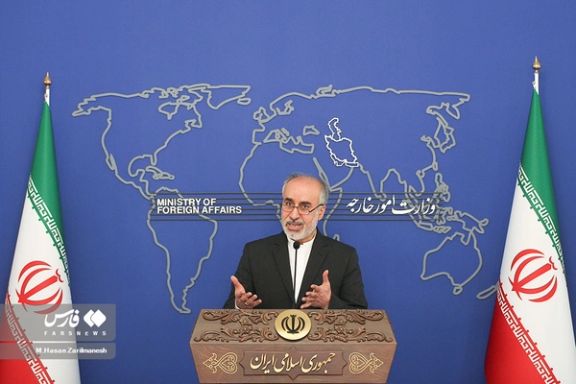
The Islamic Republic condemned Russia’s stance in support of the United Arab Emirates’ sovereignty claims over three Persian Gulf islands.
Iran’s Foreign Ministry Spokesman Nasser Kanaani said on Thursday that Tehran will not show “the slightest hesitation in maintaining its territorial integrity.”
He called the three islands “an inseparable part” of Iran, adding that the Islamic Republic considers as “non-negotiable” its territorial integrity and sovereignty over these islands.
The remarks came a day after the sixth Russian-Arab Cooperation Forum in Morocco concluded with a statement reiterating the UAE’s claim over the islands. The Russian delegation to the forum was led by Foreign Minister Sergei Lavrov.
“The statement supported peaceful solutions and initiatives aiming to resolve the conflict through bilateral negotiations or the International Court of Justice, according to international law and the UN Charter,” the UAE’s Ministry of Foreign Affairs announced.
Moscow had previously voiced its support for UAE’s claim back in July during a joint summit between the Persian Gulf Cooperation Council (GCC) and the Russian Federation.
The three Persian Gulf islands have historically been part of Iran, proof of which can be corroborated by historical and geographical documents. However, the United Arab Emirates has repeatedly laid claim to the islands, describing the situation as “the continued occupation by the Islamic Republic of Iran.”
The three islands fell under British control in 1921 but on November 30, 1971, a day after British forces left the region and just two days before the UAE was to become an official federation, Mohammad Reza Shah sent the Iranian navy to secure all three. Iranian forces remain on the islands, with only Abu Musa having a civilian population which is less than two thousand.